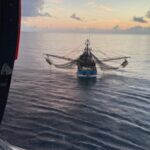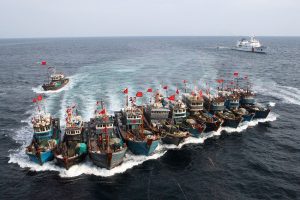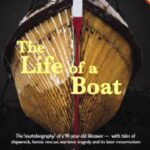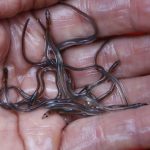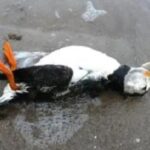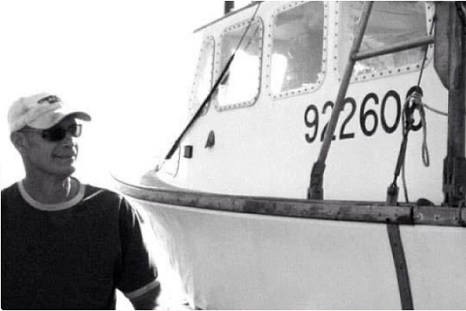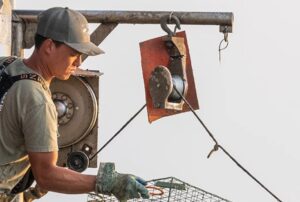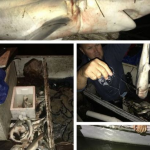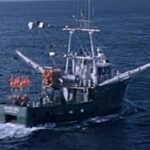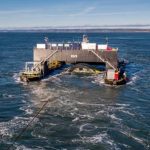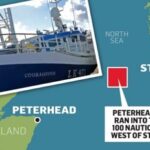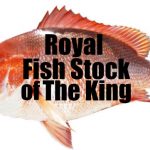Tag Archives: Maine Coast Fishermen’s Association
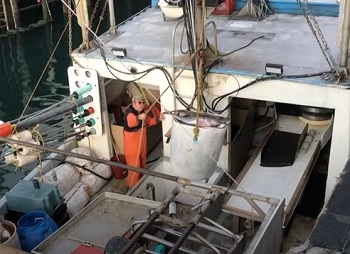
Maine fishermen donate catch to food bank, local schools
Brian Pearce of North Yarmouth usually heads out on the 45-foot Gracelyn Jane from April or May through January, fishing for monkfish or groundfish, hake, haddock, pollock, redfish, and cod. As with most everything else, though, this year was different. When Coronavirus hit, the market for local fish, primarily restaurants and exports, was among the many casualties. Pearce, along with many Maine fishermen, found it wasn’t worth the time and cost to fish, so they tied up their boats. But early Monday morning, Pearce docked at the Portland Fish Exchange and unloaded about 2,000 pounds of pollock, hake, cod, redfish, and haddock after a quick overnight trip. >video, click to read< 09:20
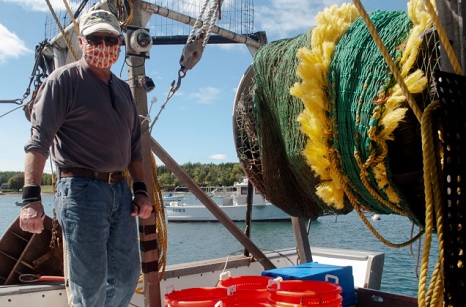
NEFMC will vote Sept. 30 on changing requirements for groundfish monitoring, fishermen have mixed responses
Commercial fisherman Randy Cushman walks on top of his boat where he measures fish in front of electronic monitoring cameras, pictured to the right. Cushman is among a handful of New England fishermen who use electronic monitoring instead of a traditional human observer to track what they catch and discard. The New England Fisheries Management Council (NEFMC) is scheduled to vote on changes to its groundfish management plan at a virtual meeting Sept. 30, culminating four years of research. “If we’re going to have accurate stock assessments, we need 100 percent coverage under this management system,” said Cushman. But, the prospect of increased monitoring concerns Terry Alexander, a fisherman who represents Maine on the NEFMC and operates his 62-foot boat out of Massachusetts. >click to read< 10:57

CARES Act : Maine’s cut of $300 million in federal seafood industry funding is nation’s fifth-highest.
Maine is in line to get $20 million to help its battered seafood industry weather the COVID-19 storm. The award, announced Thursday by U.S. Sen. Susan Collins, R-Maine, comes out of the $300 million in federal funding included in the CARES Act to help the U.S. fishing industry survive the economic losses associated with the coronavirus pandemic. Maine’s award was the fifth-highest out of 31 states. Commissioner Patrick Keliher said Thursday that he was only just learning about the award and would not be making any comments about distribution plans, , or priorities, until he received specific guidance from the NOAA. >click to read< 13:44
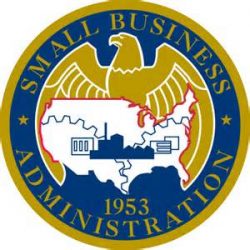
Coronavirus: Maine fishermen say they missed out on pandemic relief program
Thousands of Maine fishermen and others in the seafood sector could have qualified for pandemic relief through the Paycheck Protection Program, but many were, apparently, unable to access the benefits before the money ran out. Ben Martens, executive director of the Maine Coast Fishermen’s Association, said many of the industry’s on-the-water workers did not realize they were likely to qualify for the forgivable loans and other assistance that was briefly made available through the Small Business Administration. >click to read< 15:11
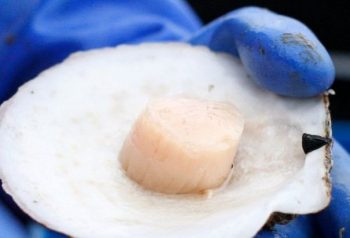
America’s got scallops: Catch is up, consumers shelling out
America’s harvest of scallops is increasing to near-record levels at a time when the shellfish are in high demand and the value of the fishery has surged in recent years. Sea scallops, harvested mostly by boats from the cold Atlantic Ocean, are the target of one of the most valuable fisheries in America. New data from the National Oceanic and Atmospheric Administration says the harvest topped 58.2 million pounds last year, the highest total since 2011 and the fifth-highest in history according to federal statistics going back to 1945. >click to read< 15:30
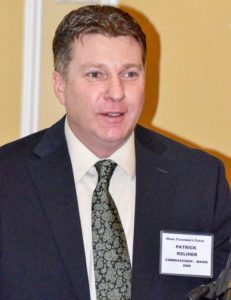
Maine fisheries groups support DMR Commissioner Keliher
In what must be a first in modern history, virtually every commercial fishing organization in Maine joined together to urge Governor-elect Janet Mills to keep Patrick Keliher on the job as commissioner of Marine Resources after she takes office in January. First reported in the Maine Lobstermen’s Association’s Landings, shortly after the election, the MLA, Downeast Lobstermen’s Association, Maine Coast Fishermen’s Association, Maine Aquaculture Association, Alewife Harvesters of Maine, Maine Elver Fishermen Association and the Independent Maine Marine Worm Harvesters Association signed a letter to Mills voicing the organizations’ unanimous support for the current DMR commissioner. >click to read<18:08
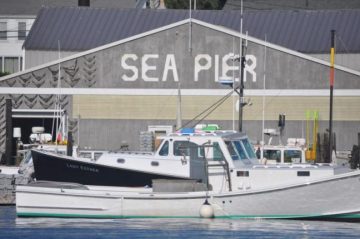
Working waterfront to be preserved in Boothbay Harbor
On Aug. 12, Deanne Tibbetts, a resident of Boothbay Harbor, invited a small group of area residents to meet and discuss concerns about the potential loss of working waterfront and, along with that, an important part of their local identity and their maritime heritage. Tibbetts is a descendant of many generations of fishermen from Southport. The purpose of this meeting was not to debate progress, change, economic development, or any specific plans for the east side of Boothbay Harbor but rather to insure that working waterfront and those people that depend on it and care about it have a seat at the table. >click to read<09:04
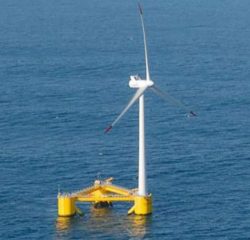
Maine coastal town’s leaders vote to oppose offshore wind project
The St. George Select Board voted Monday to oppose an offshore wind project taking shape about 12 miles away, standing with local fishermen who say the project and its transmission cable would harm their livelihoods. The unanimous vote follows a recommendation made by an advisory committee created last month by the five-person Select Board to weigh the impact the Maine Aqua Ventus offshore wind project would have on the local community. “I think it’s a good idea we sever ourselves from [Maine Aqua Ventus] and that we support the fishermen in any way we can,” Select Board member Randy Elwell said Monday. click here to read the story 21:39
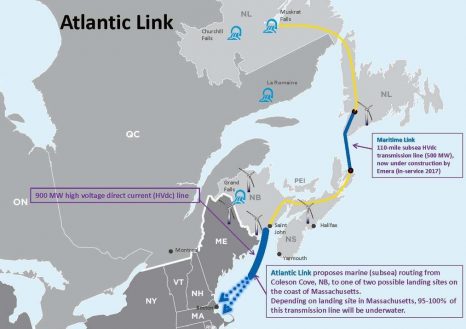
Maine fishermen could feel impact of proposed undersea cable
A Canadian company is proposing a 350-mile, sub-sea power transmission cable that could interfere with commercial fishing along the coast of Maine. If the project is approved, the Atlantic Link cable would be buried about 25 miles offshore of Harpswell, running between New Brunswick, Canada, and Plymouth, Massachusetts. It would affect about 400 lobstermen from Cape Elizabeth to Phippsburg, according to spokesman Gerald Weseen of the Nova Scotia-based energy services company Emera. Weseen and other project representatives, and staff from the Maine Coast Fishermen’s Association, conducted a meeting about the project April 21 that drew only two area lobstermen. click here to read the story 13:12
Meanwhile in the Straight of New Brunswick, Scallop fishermen worried about short- and long-term impact of electric cable installation. “Are we going to have a fishery there in the future, or are we going to have wait seven years to get it back up again?” Barlow asked. click here to read the story 14:20
For fisheries regulations, a Trump edict signals uncertainty
 New England fishermen and conservationists fear one of President Trump’s executive orders will have disruptive effects on fisheries management, although it will not affect routine seasonal fisheries regulation, as some had initially feared. The order prompted a fiery letter three days later from two prominent Democratic congressmen pointing out it could have “devastating impacts on commercial and recreational fisheries and the businesses and communities they support.” “Effectively what it means is that nobody can do anything because agencies will have to stop doing major regulatory actions because you can’t comply with this order, which may be the point,” says a former top federal fisheries management official, Andrew Rosenberg, who is now director of the Center for Science and Democracy at the Union of Concerned Scientists. Drew Minkiewicz, a Washington, D.C., lawyer representing larger Eastern Seaboard scallop fishermen, says fishermen need not be concerned about most regulations. “This executive order has zero impact on 99.9 percent of the fishing regulations going out, so people who are wondering if the fishing season will be delayed don’t need to,” he says. “It’s much ado about nothing.” Read the article here 08:39
New England fishermen and conservationists fear one of President Trump’s executive orders will have disruptive effects on fisheries management, although it will not affect routine seasonal fisheries regulation, as some had initially feared. The order prompted a fiery letter three days later from two prominent Democratic congressmen pointing out it could have “devastating impacts on commercial and recreational fisheries and the businesses and communities they support.” “Effectively what it means is that nobody can do anything because agencies will have to stop doing major regulatory actions because you can’t comply with this order, which may be the point,” says a former top federal fisheries management official, Andrew Rosenberg, who is now director of the Center for Science and Democracy at the Union of Concerned Scientists. Drew Minkiewicz, a Washington, D.C., lawyer representing larger Eastern Seaboard scallop fishermen, says fishermen need not be concerned about most regulations. “This executive order has zero impact on 99.9 percent of the fishing regulations going out, so people who are wondering if the fishing season will be delayed don’t need to,” he says. “It’s much ado about nothing.” Read the article here 08:39
The jig is up
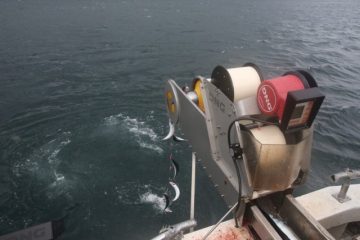 Richard Burgess, a groundfisherman in Gloucester, Massachusetts has an odd problem. Ordinarily, he’d be out on his boat with trawl and gill nets, catching pollock and hake–fish that are currently in abundant supply in the region, and which fetch high prices. But he isn’t out with trawl and gill nets. That’s because along with the glut of pollock they bring in, Burgess has to worry about catching too many cod. Burgess is currently among a small group of fishermen who are experimenting with electronic jigging–a new technology he hopes can help him target and catch specific, abundant species like pollock (though he is currently using it to target mackerel) and avoid catching protected species like cod. Read the story here Watch the video here 15:38
Richard Burgess, a groundfisherman in Gloucester, Massachusetts has an odd problem. Ordinarily, he’d be out on his boat with trawl and gill nets, catching pollock and hake–fish that are currently in abundant supply in the region, and which fetch high prices. But he isn’t out with trawl and gill nets. That’s because along with the glut of pollock they bring in, Burgess has to worry about catching too many cod. Burgess is currently among a small group of fishermen who are experimenting with electronic jigging–a new technology he hopes can help him target and catch specific, abundant species like pollock (though he is currently using it to target mackerel) and avoid catching protected species like cod. Read the story here Watch the video here 15:38
NSC Pushes PERMIT Buy Back, Re Allocation?? Governor presses for fed fish aid
![]()
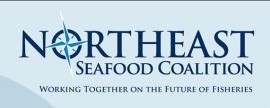 Patrick’s letter comes to light on the same day as the Northeast Seafood Coalition’s final poll of its 300 members on the recommended industry spending plan and the final draft of the plan, both of which were forwarded to the New England congressional delegation and the fishery directors of the eligible states. Read more here 11:31
Patrick’s letter comes to light on the same day as the Northeast Seafood Coalition’s final poll of its 300 members on the recommended industry spending plan and the final draft of the plan, both of which were forwarded to the New England congressional delegation and the fishery directors of the eligible states. Read more here 11:31
Proposed NSC & Associates Groundfish Disaster Aid Spending Plan: My vote is NO – Dick Grachek Read more here
Proposed NSC & Associates Groundfish Disaster Aid Spending Plan: My vote is NO – Dick Grachek
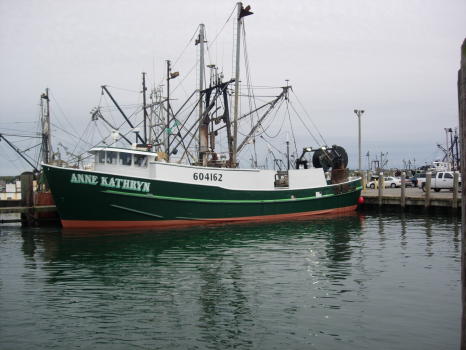 Dear Dick, We need you to review and vote with a YES or NO on the consensus spending plan and respond to us in writing by 10 am on Monday March 17, 2014. If you vote NO – we would greatly appreciate a brief explanation. Groundfish Disaster Aid Spending Plan here
Dear Dick, We need you to review and vote with a YES or NO on the consensus spending plan and respond to us in writing by 10 am on Monday March 17, 2014. If you vote NO – we would greatly appreciate a brief explanation. Groundfish Disaster Aid Spending Plan hereMy vote is NO.
It’s difficult to give a “brief” explanation because there are so many things so terribly wrong with this proposal. In fact most of it is insulting and infuriating! First of all,,, Read more here 19:02
Groundfish Disaster Aid Spending Plan: NSC, Assoc.Fisheries of Me., CCCFA and Maine Coast Fishermen’s Assoc.
 This proposal is meant to accomplish the following: (1) Offer a regional spending plan to ensure consistency in the treatment of fishing businesses affected by the disaster. (2) Mitigate the economic injury incurred to those commercial fishing businesses that have been impacted by the groundfish disaster. (3) Improve the future viability of the commercial groundfish fishery. . Read more here 02:27
This proposal is meant to accomplish the following: (1) Offer a regional spending plan to ensure consistency in the treatment of fishing businesses affected by the disaster. (2) Mitigate the economic injury incurred to those commercial fishing businesses that have been impacted by the groundfish disaster. (3) Improve the future viability of the commercial groundfish fishery. . Read more here 02:27


































